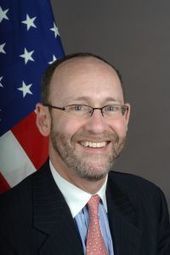On a mailing list which I am following, someone suggested in relation to privacy and the NSA:
“There is probably already an international treaty or resolution at https://www.treaties.un.org dealing with privacy of communications. But, the NSA probably does not pay much attention, if they are even aware of these statements at all. NSA will, however, pay attention to the US Executive, US Courts and/or US Congress because these agencies have real power over it.”
Somehow the suggestion to check on an international privacy treaty seemed like an interesting challenge to me. It has been a very interesting exercise, even though I need to add the caveat that I am not a member of the legal profession, but only an interested lay person.
Summary (for those who don’t want to read my full and lengthy commentary):
There is such an international treaty, the ICCPR, it has been signed and ratified by the US Senate, but it does not create a law of the nation that can be independently executed, and Congress has not passed any enabling legislation. The US has already been notified by the UN HRC that this is not ok, and a review will take place in March 2014.
Full commentary below.
(Referenced URLs have been included at the bottom for better readability.)
The resolution on “The right to privacy in the digital age” that Brazil and Germany proposed and which the General Assembly adopted at the UN (1) was referring to such an international treaty dealing with privacy of communications, namely the International Covenant on Civil and Political Rights (ICCPR).(2)
It has been noted by the US Senate that
“The Covenant is part of the international community’s early efforts to give the full force of international law to the principles of human rights embodied in the Universal Declaration of Human Rights and the United Nations Charter. The Civil and Political Rights Covenant is rooted in western legal and ethical values. The rights guaranteed by the Covenant are similar to those guaranteed by the U.S. Constitution and the Bill of Rights.” (4.A)
Clearly, it is correct to say that the NSA does not have to directly pay attention to
such a treaty. However, through ratification in the US Congress, usually (in theory) such treaties become part of the law of the nation.
In such a case, the President, who is the Chief of the Executive Branch of Government, and who takes an oath of office to protect the Constitution (and the laws of the land), would need to tell his executive agencies, including the NSA, to follow the law created through
ratification of such a treaty and through follow-on enactment of national laws giving power to such treaty stipulations.
However, here comes the caveat. While the US did sign and ratify that treaty in 1992, they did also include a number of reservations, understandings, and declarations. (3)
The first of the declarations states:
“(1) That the United States declares that the provisions of Articles 1 through 27 of the Covenant are not self-executing.” (4)
As a clarification, the Senate added in its report on the deliberations:
“For reasons of prudence, we recommend including a declaration that the substantive provisions of the Covenant are not self-executing. The intent is to clarify that the Covenant will not create a private cause of action in U.S. courts. As was the case with the Torture Convention, existing U.S. law generally complies with the Covenant; hence, implementing legislation is not contemplated.” (4.A, page 20)
This means that the ratification does not create independent US law that could be pursued in a US Court, but only binds the US internationally. This interpretation has been upheld in Court (5, 6), but is being challenged by some constitutional scholars. (7)
According to the US Court of Appeals for the Sixth District:
“‘Courts in the United States are bound to give effect to international law and to international agreements, except that a ‘non-self-executing’ agreement will not be given effect as law in the absence of necessary authority.’ Restatement (Third) of Foreign Relations Law 111 (1987). Neither the American Declaration nor the International Covenant is self-executing, nor has Congress enacted implementing legislation for either agreement.” (6)
The general comment by the Human Rights Committee (1994) condemns this practice:
“Of particular concern are widely formulated reservations which essentially render ineffective all Covenant rights which would require any change in national law to ensure compliance with Covenant obligations. No real international rights or obligations have thus been accepted. And when there is an absence of provisions to ensure that Covenant rights may be sued on in domestic courts, and, further, a failure to allow individual complaints to be brought to the Committee under the first Optional Protocol, all the essential elements of the Covenant guarantees have been removed.” (8)
And in 2006, the Human Rights Committee concluded its remarks about the reports by the US government, and under section C. Principal subjects of concern and recommendations makes specific mention of the NSA:
“[..] the Committee is concerned that the State Party, including through the National Security Agency (NSA), has monitored and still monitors phone, email, and fax communications of individuals both within and outside the U.S., without any judicial or other independent oversight.” (9)
The HRC (2006) further recommends:
“The State party should review sections 213, 215 and 505 of the Patriot Act to ensure full compatibility with article 17 of the Covenant. The State party should ensure that any infringement on individual’s rights to privacy is strictly necessary and duly authorized by law, and that the rights of individuals to follow suit in this regard are respected.” (9)
A review meeting scheduled for the 109th session of the UN HRC in the second half of October 2013 has been postponed until March 2014 on request by the USA citing the government shutdown as a reason. (10, 11) The next review on 14 March 2014 could become interesting, having the NSA as a subject at sections 332ff of the US Report. (12)
In light of this, it appears to me that the US may perhaps be liable by international law to ensure the human and civil rights of its citizens and those of people from other nations. However, if any individual feels his/her rights may have been violated by the US executive (e.g. NSA), and presses charges in a US Court, such Court will refuse to make a
judgement, citing lack of jurisdiction under the circumstances of the ratification with the given reservations and declarations.
The only way out could be to challenge this interpretation in the Supreme Court. The Supreme Court of North Dakota in January 2004, however, has already upheld the interpretation of the “not self-executing” clause of the Senate ratification, summarizing a number
of appelate court cases. (13) The (federal) US Supreme Court has to my knowledge not yet made a judgement specifically on that particular clause in relation to the ICCPR.
What is known is an opinion of Chief Justice Marshall, writing in Foster v. Neilson, 27 U.S. 253, 314-15 (1829):
“Our constitution declares a treaty to be the law of the land. It is, consequently, to be regarded in courts of justice as equivalent to an act of the legislature, whenever it operates of itself without the aid of any legislative provision. But when the terms of the stipulation import a contract, when either of the parties engages to perform a
particular act, the treaty addresses itself to the political, not the judicial department, and the legislature must execute the contract before it can become a rule for the Court.” (14)
Perhaps we need to realize that laws and international treaties have entered a new era and we need to continuously challenge and advance human rights. I think this is the essence of the concluding remark by Harold Hongju Koh, legal adviser to the US Dept. of State, in his speech at Georgetown Law in October 2012:
“Make no mistake: this is not your grandfather’s international law, a Westphalian top-down process of treatymaking where international legal rules are negotiated at formal treaty conferences, to be handed down for domestic implementation in a top-down way. Instead, it is a classic tale of what I have long called “transnational legal process,” the dynamic interaction of private and public actors in a variety of national and international fora to generate norms and construct national and global interests. The story is neither simple nor static. Twenty-first century international lawmaking has become a swirling interactive process whereby norms get “uploaded” from one country into the international system, and then “downloaded” elsewhere into another country’s laws or even a private actor’s internal rules.” (15)
References:
- Draft of Resolution: “The right to privacy in the digital age”
- International Covenant on Civil and Political Rights (ICCPR)
- Wikipedia entry:
- US Senate Ratification (and reservations):
- (search for treaty 95-20, 95th Congress)
- Background on US ratification:
- US Court of Appeals (First Circuit) judgement including a reference on non-self-execution of the treaty:
- US Court of Appeals (Sixth Circuit) notes (Footnote 134):
- Berkeley Law School: John C. Yoo, “Globalism and the Constitution: Treaties, Non-Self-Execution, and the Original Understanding, 99 Colum. L. Rev. 1955 (1999)”
- Human Rights Committee (1994) report (CCPR/C/21/Rev.1/Add.6):
- http://www.un.org/ga/search/view_doc.asp?symbol=CCPR/C/21/Rev.1/Add.6
(page 5, para 12). - Human Rights Committee (2006) concluding observations (CCPR/C/USA/CO/3/Rev.1):
- Postponement of US review by UN HRC (2013)
- Agenda for the 110th session of the UN HRC
- US Report (CCPR/C/USA/4) to the 110th session of the UN HRC
- Supreme Court of North Dakota decision
- US Chief Justice Marshall’s opinion:
- Twenty-First Century International Lawmaking












 U.S. President Barack Obama broke all well-trodden paths and presidential campaign rules Wednesday afternoon, when he became the first candidate of either party to do an AMA (“ask me anything”) on Reddit. The appearance was a complete surprise, even for veteran Redditors.
U.S. President Barack Obama broke all well-trodden paths and presidential campaign rules Wednesday afternoon, when he became the first candidate of either party to do an AMA (“ask me anything”) on Reddit. The appearance was a complete surprise, even for veteran Redditors.




Follow me on Social Media